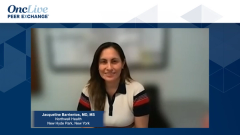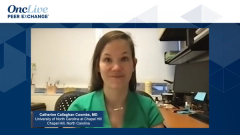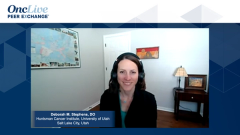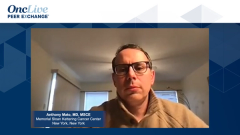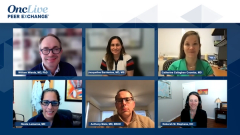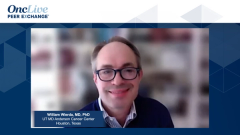
CAR T-Cell Therapies in CLL
Take-home messages from ASH 2021 regarding the role of CAR T-cell therapies in chronic lymphocytic leukemia.
Episodes in this series

Transcript:
William Wierda, MD, PhD: Let’s turn to CAR [chimeric antigen receptor] T-cell therapy. Nicole, we have CAR T-cell therapy available for other B-cell malignancies. There isn’t anything approved for CLL [chronic lymphocytic leukemia]. Can you summarize where we’re at with that modality and where you think it’s going in the future for CLL.
Nicole Lamanna, MD: There were several presentations, of course. CAR T cell has been evolving over the years because it’s approved for…multiple relapsed DLBCL [diffuse large B-cell lymphoma] patients and obviously for acute lymphoblastic leukemia. But in CLL, it hasn’t been approved, and there’s a plethora of agents. Many studies that have shown the clinical efficacy of CAR, but when we weigh some of the toxicity issues, we’re choosing between PI3 kinase inhibitors. Where would this fall for CLL? In which line of therapy will it evolve as well? There were a couple of presentations, with 1 looking at the third-generation CD20 CAR T cells with both 4-1BB and CD28 costimulatory domains, hoping to decrease some of the CRS [cytokine release syndrome] and the neurotoxicity. In patients with lymphoma as well as a cohort of patients with CLL, the responses are quite dramatic. The overall response is somewhere around 80% and CR [complete response] somewhere between 40% and 50%. They reported no neurotoxicity and low CRS rates. As the evolution of CARs trying to minimize toxicity, there’s activity both in the lymphoma subsets and clearly in patients with CLL as well.
There was another abstract looking at AUTO1, a fast off-rate CD19 CAR in patients with CLL, in terms of reducing the immunotoxicity and improving engraftment of CAR T cells in our CLL population. Similarly, multiple types of patients, including lymphoma and CLL, were treated. There were responses seen, although early numbers were small. Neurotoxicity seems very minimal and the CRS was grade 1, grade 2. There was improvement of some of the toxicity profile of the concern of the CAR T cells, given the cytokine release syndrome, the neurotoxicity issues, and tumor lysis. Certainly, we’re improving the toxicity profile of CAR T. There are responses seen in some of our patients with relapsed CLL.
But where do we fit CAR T? I’d like to throw that out to everybody. Given the types of therapies that we have between the BTK [Bruton tyrosine kinase] inhibitors, venetoclax, the noncovalent BTK inhibitors, we typically will relegate them—right or wrong, because they do have efficacy—to our multiple relapsed younger, fitter, high-risk patient population for CAR T cell as these other therapies evolve and take up this space.
There was also an abstract looking at real-world data and at the incidence of adverse events with CAR T cells and hospitalizations in patients who received CAR T cells within that first year. And 44% were hospitalized because of some adverse event, usually infection or myelosuppression related. It’s something to keep in mind, and we’ll need more. Clearly, we’re up on the adverse-effect profile, but where to fit that in the paradigm of treatment, given all our options, is going to be tricky.
William Wierda, MD, PhD: I agree. For me it depends on the durability of those responses. Do we see a plateau on the progression-free survival curve? I’ve had patients I treated with CAR T who had failed everything, and they’ve gone. I saw a lady last week who went a year ago to CAR T-cell therapy and is MRD [minimal residual disease] negative in remission still. It will find a place. It does depend, in part, on the durability of the remissions and the percentage of patients who have a very durable remission.
Transcript edited for clarity.


